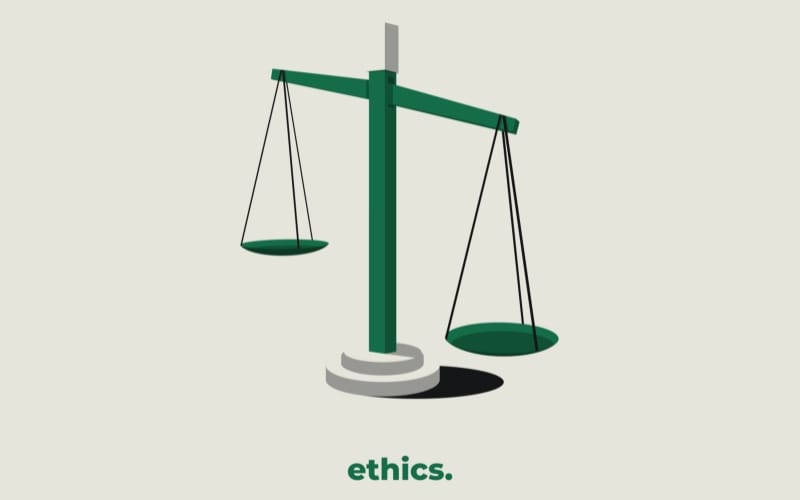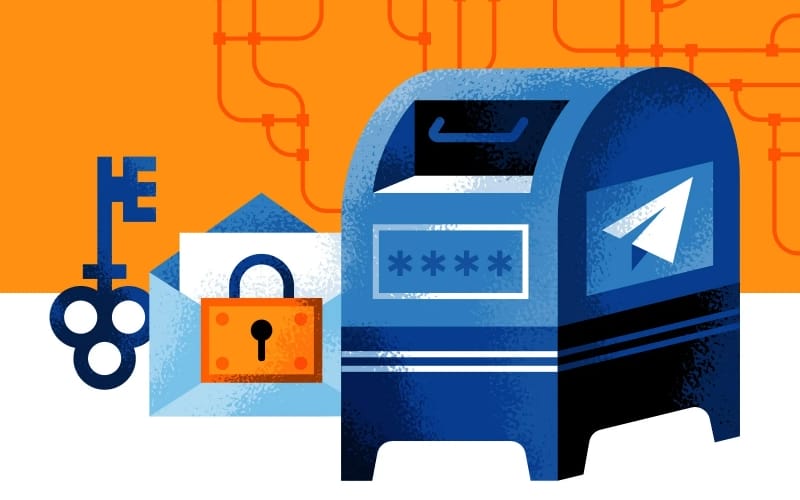
It is very important to have ethics in marketing research because everyone involved from the clients and the public to the respondents and the researchers all have rights and obligations. When market research methods don’t involve ethics, lines are easily crossed and laws are broken.
When the importance of ethics in marketing research is overlooked, companies can face serious ethical repercussions and drastically impact the lives of consumers. Thanks to the rise of the internet and social media, market research methods have exploded and it’s now easier than ever before to conduct low-cost market research. Without ethics in market research though, companies can face major public backlash and innocent lives could be ruined.

That’s why research guidelines are designed to protect a company’s workers, its customers, and the validity of the information gathered, but the risk or reward for certain guidelines are not always clear. How can your small business get the cost-effective marketing research you need while still upholding multiple codes of ethics?
Defining Ethics

Ethics, in a broad sense of the word, is difficult to define. Personal ethics tend to differ from person to person, however, each industry has a generally accepted, even if not published, code of ethics. Infusing ethics throughout your business matters because it reflects both the beliefs your organization holds and on you personally.
Marketing research is such a ubiquitous mission that it applies to the business, charity, and academic worlds. For this reason, there are different codes of ethics for different types of marketing and research, such as social media marketing, marketing towards children, and public opinion elections.
Why Ethics is Important in Market Research

Research is a large part of a successful marketing strategy. To market effectively, you should know your target audience, what they need and want, and the best means to reach potential clients. All of these require thoughtful, informed, and ethical research.
Unfortunately, Market research is often manipulated or refuted because it holds so much power to influence. We’ve all seen the stories on the news of fake market research.
Falsified research can result in product recalls, misleading claims for investors, and threats to the safety of users.
Those are some main point why ethics is important in market research:
⦁ Privacy:

Privacy is a major concern for customers today, especially after the many impropriety of companies misusing customer information. With companies having an unmatched ability to collect and store massive amounts of customer data, the importance of ethics in marketing research has never been higher. While there are many market research methods to collect and use customer information to sell products or target advertising messages, conquering the privacy of customers is a risky business that never pays off in the end.
⦁ Rights and Obligations:

Everyone involved in the market research operation, from clients and researchers to the public and respondents, has rights and obligations they expect to be met. From biased research methods and the occupation of privacy to unqualified research methods and twisting, understanding ethics in marketing research is the best and only way to meet the rights and obligations of all parties involved in the market research. Paying attention to the ethical importance of meeting the rights and obligations of everyone involved is the best way to avoid any unethical concerns when it comes to your market research methods.
⦁ Deceptive Practices:

The importance of ethics in marketing research doesn’t just apply to the way participants are treated but market research methods as well. Companies today have more access to customer data than ever before and this amount of access can easily lead to false practices. Practices, like corrupt research results and not reveal to consumers that their data is being collected, make understanding why ethics in marketing research is more important than ever before. Lying and deceiving customers to access and gather information is ethically wrong and could backfire in a devastating way.
⦁ Confidentiality:

Understanding what a violation of confidentiality is can help your company avoid ethical issues when it comes to your market research methods. The importance of ethics in marketing research is to help companies avoid any illegal sharing of customer data, whether it’s sharing information with affiliates or selling that information to outside companies. Breaking of confidentiality are great ways to discourage market research respondents from participating in any future market research methods and receive public backlash for your unethical practices.
Here is a list of the things you can do and things you can not do to apply ethical market research.

There are important things you have to do while applying ethical market research:

⦁ You have to respect the rights of all research participants: confidentiality, transparency, and privacy. Ensure that all participants are voluntary, and that they have the right to pull out their consent at any point during the research process. Participants must also be informed if they are being filmed or recorded.
⦁ Be sure to quote the name of the firm that conducted the research, the purpose, and the dates of the study in any reports. By transparency, you’ll show your viewers that your research is trustworthy, and that the strategies you used were really effective.
⦁ Establish with the firm you have hired to conduct the research that they are conducting it in your best interest, not their interests, and that the research being run is of no benefit to their personal or firm interests. It is best to come to an agreement about the means of research and the cost of the research before anything is begun.
On the other hand, there are important things you should not do while applying ethical market research:
⦁ You should never ask the researchers for confidential information about the respondents or their responses.
⦁ Never quote any research in which the responses have been influenced or forced. This is useless research and use of it is ultimately ineffective for promoting your organization or product.
⦁ It’s not required to conduct primary research new data, when you can purchase the results of a secondary study the data you already collected with the same purpose for much cheaper. Why pay for a costly survey or focus group when someone else has already done something with the needed results?
⦁ It’s impossible to ask for quantitative analytics from a qualitative study, and vice versa. If you need a certain kind of data, make sure the study is done in a way whereas the results are useful for your organization and purposes.
⦁ Don’t dictate the methods used by the firm you’ve hired to conduct the research, leave it to the research professionals. However they should explain the ‘why’ of their recommendation.
So, What does that mean to my business?

There are a lot of different ways marketing research can go wrong. Without a clear code of ethics, a mission-driven business could sponsor a focus group or other research project that can end up seriously harming them and their customers.
Unluckily, it happens all the time: the public recognize a suspicious business, said business is immediately denounced by many previous clients, and the business loses credibility, which can be difficult or even impossible to recover from.
Ethical practices in marketing research will create effective answers for your organization’s questions and build trust and credibility with your employees, clients, and stakeholders. A mission-driven, win-win approach!

The importance of ethics in marketing research has never been greater thanks to many recent scandals of companies abusing customer data and the amount of data companies have access to.
It’s important to have ethics in marketing research, not only for the benefit of your company but for the benefit of your customers, employees, and suppliers as well. There may be many market research methods available to companies today but any method that makes you question your ethics or completely throw them out the window is not worth your time or your customer’s time.
